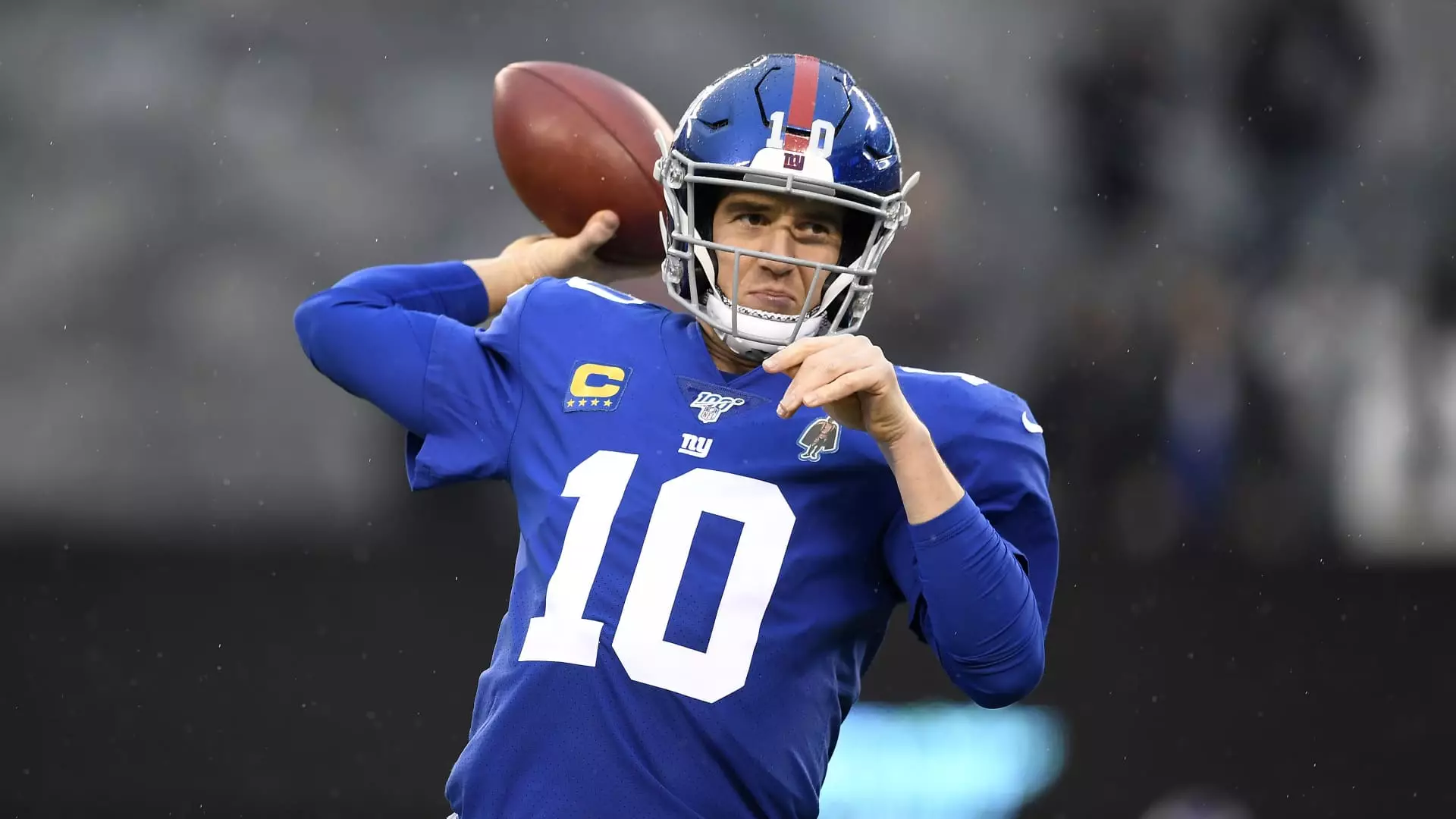In recent years, the skyrocketing valuations of professional sports teams have painted an alluring picture for potential investors—especially those who dream of wielding influence in the sports world. However, the reality behind these valuations is far less glamorous than the headlines suggest. Eli Manning’s candid admission that he’s been priced out of acquiring even a minor stake in his former team, the New York Giants, exposes a flawed narrative: that sports franchise ownership is a domain reserved for the ultra-wealthy only. While the league and its associated entities promote the idea of democratization, the truth reveals a stark divide—a chasm that keeps most aspiring fans and former players on the sidelines.
This illusion of accessibility masks a fundamental economic truth: the immense barriers to entry mean that these lucrative franchises are increasingly off-limits to anyone without billionaire status. Manning’s declaration—”It’s too expensive”—is not just a personal disappointment but a wake-up call that underscores how oligarchic structures dominate professional sports. When a mere 1% stake in the Giants is valued at $100 million, it ceases to be a feasible aspiration for the vast majority. Such staggering valuations exemplify a distorted economy where the value of a team far outstrips what most can even comprehend, let alone attain.
The Cost of Celebrity and Influence in a Commercialized Sports Industry
For individuals like Manning, the allure of ownership is belied by practical concerns. Beyond the prohibitive cost, there are numerous conflicts of interest baked into the current landscape. Manning’s reasoning for stepping back reflects the broader reality that sports are now big business—so big that even former players with substantial earnings are sidelined. The potential for conflicts with broadcasting duties, mentoring roles, and personal brand management creates hurdles that seldom get the spotlight but are just as significant as the monetary barrier.
This scenario betrays a broader societal issue: the commercialization and commodification of sports have transformed what was once a game into a multi-billion-dollar industry where access is effectively limited to the elite class of investors. Manning’s decision not to pursue a stake is a reflection of the systemic barriers that prioritize wealth over merit or passion. The narrative of sports ownership as a democratic pursuit is fundamentally flawed when the price tag for mere participation exceeds the reach of most, turning what could be a participatory passion into an exclusive club for billionaires.
Market Valuations and the Myth of Fairness
The disparity in franchise valuations across the NFL, NBA, and other leagues highlights the disparity between public perception and economic reality. The Giants at $7.85 billion, the Eagles surpassing $8 billion, the 49ers crossing the $8.5 billion mark, and the Lakers reaching a staggering $10 billion—these figures are emblematic of a distorted market driven by speculative investment, media hype, and franchise branding rather than intrinsic value.
While these valuations generate headlines and fuel investor interest, they serve to perpetuate a fantasy rather than reflect genuine investment opportunities for most. The sale of minority stakes at ever-increasing valuations—often with little tangible change in ownership influence—illustrates how the system prioritizes inflated figures over meaningful participation. This bubble-like scenario creates a false sense of opportunity, making it appear as though ownership is within reach, but in reality, it is an unattainable goal for all but a handful of the wealthiest individuals.
The Central Role of Wealth and the Democratic Deficit in Sports
At its core, the debate about sports team ownership reveals a more profound issue: the asymmetrical distribution of economic power. The fact that only those with astronomical wealth can even entertain the idea of controlling a sports franchise underpins a broader social inequality. Manning’s case exemplifies how the sports industry, rather than being a realm of opportunity for all, continues to be a playground for the ultra-wealthy.
This concentration of wealth and influence works against the principles of fairness and equal opportunity. When the most iconic teams are valued at tens of billions of dollars, and ownership stakes require investments of hundreds of millions, it’s clear that the system favors entrenched economic power. The enduring myth that sports ownership is an accessible goal continues to serve corporate interests, reinforcing societal divides that threaten the very fabric of sporting communities.
In reality, sports should be a platform for diverse voices and community engagement, not a luxury good for billionaire financiers. Manning’s withdrawal from ownership prospects underscores the urgent need for structural reforms that democratize access and curb speculation-driven valuations. Without such measures, the dream of ownership remains forever out of reach, reserved only for the select few who already hold the keys to the kingdom.


Leave a Reply